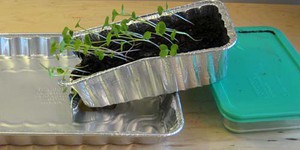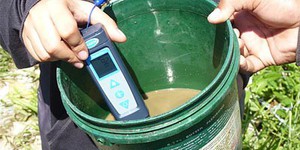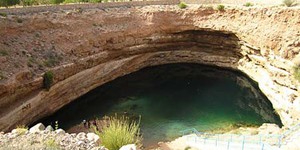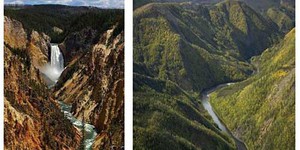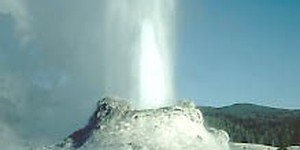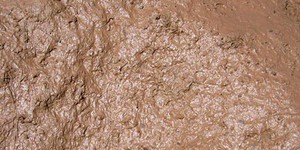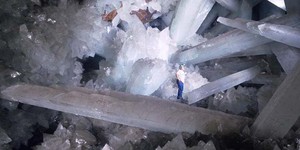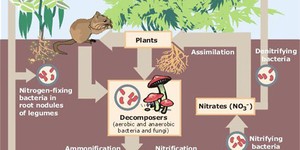Fifth Grade, Geology Science Projects (15 results)
Geologists study the Earth, trying to understand the forces that gradually shape and change the landscape and ocean floor, as well as forces that make themselves felt more suddenly, like earthquakes and volcanoes. The information geologist discover helps in many ways, from keeping populations safe from disasters like landslides to uncovering important ore deposits like titanium used for surgical equipment.
|
Select a resource
Sort by
|
Soil erosion can cost the world billions of dollars every year by washing pollutants into our streams and rivers and by causing the loss of farmland. What can you do about this problem? Help save the world (and some money!) with nothing more than a few plants!
Read more
Featured
Have you heard that garlic powder is supposed to inhibit the growth of bacteria? Which do you think would make a better disinfectant: a solution of garlic powder or a solution of bleach? This project shows you a straightforward way to compare the effectiveness of different disinfectants (or other antimicrobial agents), by measuring zones of inhibition on a culture plate.
Read more
Did you know that soils can be alkaline, neutral, or acidic? Most plants grow best in soil near neutral pH, but some plants prefer slightly acidic and others slightly alkaline soil. What is the pH of the soil in your garden? What happens to the pH of water that comes in contact with soil? In this science project you will get to find out.
Read more
New
Does your dog get bored when you are not home? Do you ever toss them a few treats right before you head out the door? What if you could keep them busy by automatically dispensing treats throughout the day? What about training them to sit in a certain place or even press a button by automatically rewarding them with treats? In this project you will build your own automatic dog (or cat, or other pet) treat dispenser that you can customize to react to different sensors.
Read more
If you have ever prepared a cup of coffee or tea with sugar, you have probably seen that the grains of sugar quickly dissolve and completely disappear in hot water. But sugar is not the only type of solid that can readily dissolve in a liquid. In fact, there are some types of rocks that can be dissolved by common liquids. It might be hard to imagine large, hard rocks being eaten away by some ordinary fluids, right? But it actually happens all the time! In this geology science project, you will…
Read more
Have you ever had fun playing with sand and water, observing how little rivers you create carve their way down to the lowest point of the sandbox, backyard or beach? Some meander, others braid, and some carve a path straight down.
Hyrdologists (or scientists who study water) do very much the same thing! Only they set up the model in a particular way, so observing their mini-rivers helps them answer questions about how water flow affects the environment. In this geology science project, you…
Read more
Our home, Earth, is a living planet. Earthquakes and volcanic eruptions are proof that the geological forces that shaped our planet and created the land masses are ongoing. An amazing example of geologic activity that is less damaging is a geyser. In this geology science fair project, you will build a model geyser and determine how depth of the source affects how the water is ejected. By the end of this project, you will know a lot more about geysers and understand that a geyser is much more…
Read more
New
Have you ever wondered how your smart devices can recognize and distinguish your face from that of others? In this project, you will explore how to create and modify a facial recognition model using a type of artificial intelligence known as neural networks. This project is designed for beginners and requires little to no coding experience. Ready to give it a shot?
Read more
Have you ever taken a step onto what appeared to be dry ground, only to find yourself ankle-deep in mud? Yuck! When you walk through damp soil, it can be a very messy experience. How can you tell if soil is wet or dry before you step on it? In this science project, you will investigate whether the color of the soil can help you determine how dry or wet it is.
Read more
Visit the USGS Earthquake Hazards Program to find out about global patterns of earthquake incidents (USGS, 2006). Can mapping earthquakes help identify fault lines? They also have a list of science fair project ideas. Another great resource for earthquake-oriented science fair projects is by Jeffery Barker (Barker, 1994). Build a model to study the forces of an earthquake using sandpaper-covered blocks. What are the forces involved? How are stress and friction in balance along a fault line?…
Read more
Sedimentary rock forms in layers that are deposited one after the other over long periods of time. Oftentimes, sedimentary rock contains fossils and other debris that are deposited within the layers. How do sediments form? How are sediments of different shapes, sizes, and types sorted during the process of sedimentation? Find out in this science fair project!
Read more
Caves have been used for much more than just exploring throughout Earth's history. Caves have been used for shelter, for religious purposes, and for burial sites. They were even used for food storage, before refrigeration, because they are cool and have constant high humidity. But how are caves formed? What causes those fantastic formations in caves? How do cave formations change as you go deeper in the cave? Get ready for an adventure as you visit a local cave and learn more in this science…
Read more
Everything on our planet is connected together, linked by a giant recycling system called the biogeochemical cycle. It is an amazing process. You can actually investigate how our planet recycles and reuses everything needed to support life by making a small model of the biosphere. What will be important to include in your miniature system so that it can support different types of life?
Read more
|
Explore Our Science Videos
Video Game Demonstration
Find Your Blind Spot!
Design and Make Automata

